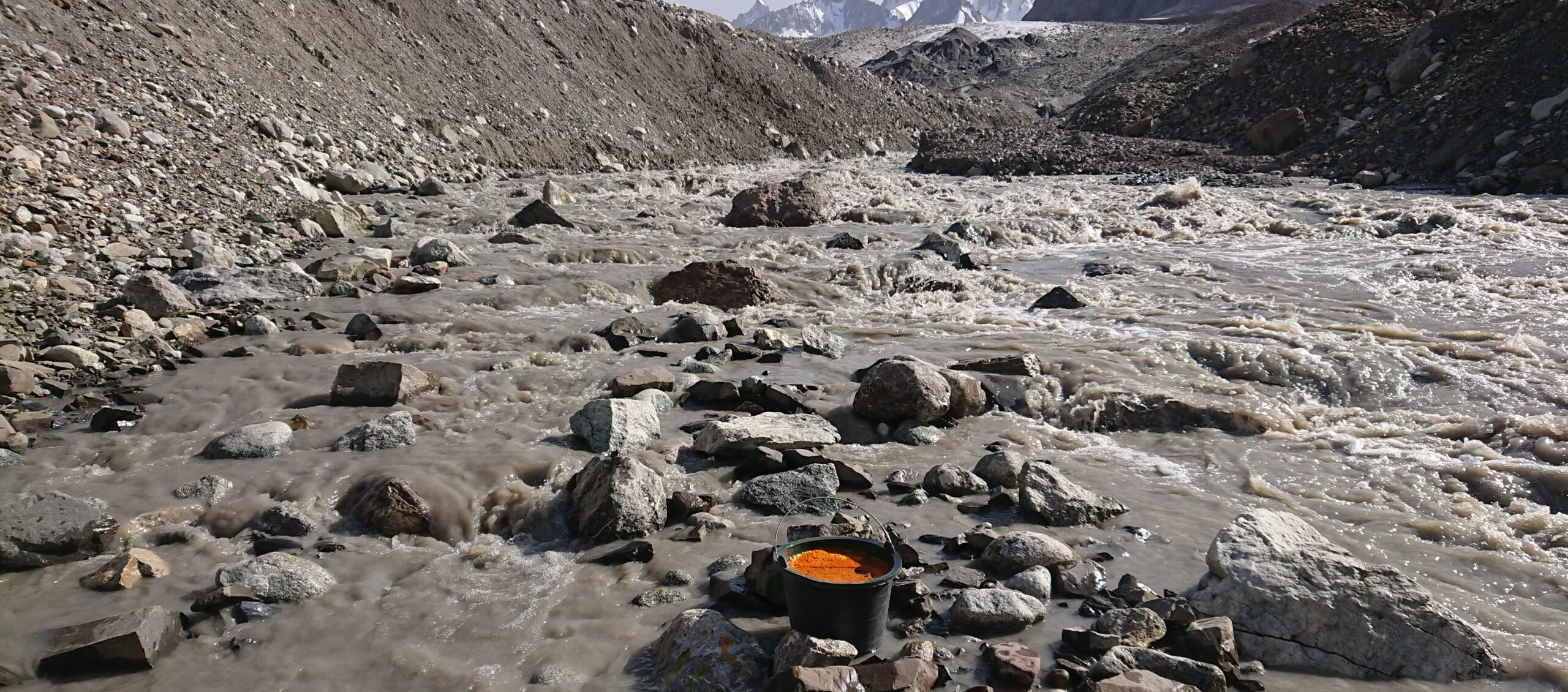Glacier-fed stream ecosystems are particularly vulnerable to climate change and in many cases literally vanishing before our eyes. In the present day, we have a better understanding of microbial life in the deepest ocean than in glacier-fed streams. This is alarming because microorganisms form the foundation of the food web and regulate critical processes in most fluvial ecosystems, particularly in glacier-fed streams which are largely devoid of allochthonous energy subsidies.
A growing body of evidence is revealing the diverse microbial life in glacier-fed streams, providing first insight into the abundance and diversity of bacteria, archaea and eukaryotic algae, but also viruses. However, we do not yet understand how the glacier-fed stream microbiome has adapted to the extreme environment and how it will respond to environmental changes connected to glacier shrinkage.
The most widely used approach to predict impacts of glacier shrinkage on GFS ecology is by substituting space for time and taking measurements along a glacier fed stream.However, such space-for-time substitution does not allow for proper hypothesis testing because of missing controls, such as glaciers with neutral or even positive mass balances. Within the PAMIR programme, we take advantage of the exceptional situation of the Pamir mountain range with glaciers that are either shrinking or growing, and some that have a neutral mass balance. This offers an exceptional ‘field laboratory’ to test the impacts of climate change on the glacier-fed stream microbiome and its biogeochemistry.
Our plan is to visit a range of glacier fed streams in the Pamir mountains three times over three or four years. During the first expedition, sensors to monitor relevant environmental parameters, such as water level and temperature will be installed and local collaborators will ensure sensor maintenance and continuity between the expeditions.
Our sampling approach will thus allow us to relate glacier-fed stream microbiome structure and function to glacier dynamics, taking into account catchment characteristics, geological and ecological controls. Furthermore, our approach across spatial and temporal scales will improve our understanding of climate-mediated impacts on glacier-fed microbial ecology and biogeochemistry.
Cluster Participants
Tom J. Battin, Professor, EPFL, Cluster PI.
Francesca Pellicciotti, Senior scientist, ISTA. Coordination with glaciology activities.
Martin Hoelzle, Professor, UniFr. Coordination of permafrost activities.
Margit Schwikowski, Professor, PSI and UniBe. Coordination of ice-coring activities until 2023.
Evan Miles, Senior Scientist, UniZ and UniFr. Coordination of ice-coring activities.
Hannes Peter, Senior scientist, EPFL. Microbial ecology.
David Touchette, PhD Candidate, EPFL. Cryomicrobiology
Martina Mateu, Postdoc, EPFL. General microbiology, phenotyping.
Florian Baier, Research Assistant, EPFL. Molecular biology.
Massimo Bourquin, PhD candidate, EPFL. Population genetics and evolution.
Grégoire Michoud, Postdoc, EPFL. Metagenomics, molecular biology.
Tyler Kohler, Postdoc, EPFL. Arctic and GFS stream biogeochemistry.
Devis Tuia, Associate Professor, EPFL. Remote sensing, machine learning for field data analysis.
Local Partners
Bolot Moldobekov, Professor and Director, CAIAG, Kyrgyzstan, glacier expert, logistical support.
International Partners
Leila Ezzat, Postdoc, University of Montpellier, France. Metagenomics, microbial ecology.
Robert Spencer, Professor, FSU, USA. Organic matter biogeochemistry.
Alexandre Anesio, Professor, Aarhus University, Denmark. Cryomicrobiology.
Birgit Sattler, Senior scientist, University of Innsbruck, Austria. Cryomicrobiology.
Susheel Bhani Busi, Senior scientist, University of Luxembourg. Metagenomics, microbial ecology.
